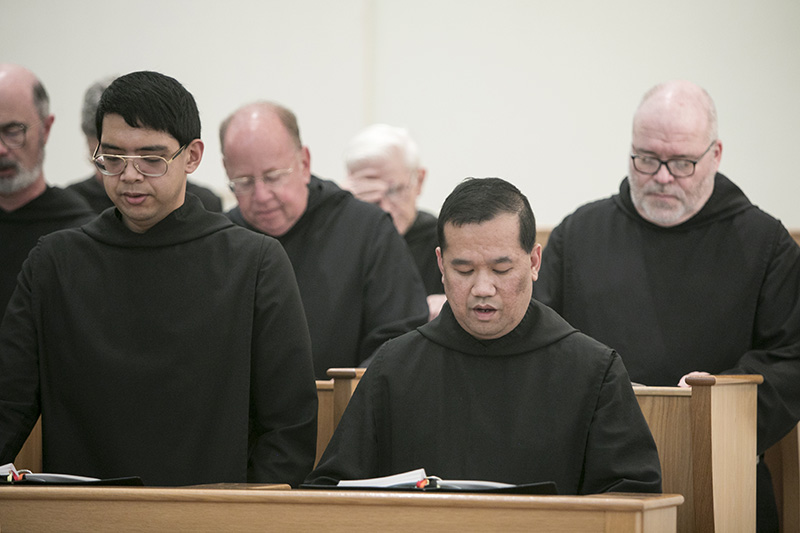Building Perfection
Fr. Adrian Burke, OSB
Thursday, September 4, 2025

“...for anyone hastening to the perfection of monastic life there are the teachings of the holy Fathers, the observance of which will lead him to the very heights of perfection.”
Rule of Saint Benedict 73:2
In the final chapter of his Rule St. Benedict admits that this “little rule” is for beginners (RB 73: 1; 8). He doesn’t claim that following his Rule is enough to lead us to Christian perfection. He is more modest; he says this little rule will aid the monk to establish a “beginning”. It’s a foundation and a frame, like for a house. A solid foundation is critical, of course, but just framing the structure isn’t enough either, we need brick and mortar, sheetrock, wallboard, flooring, electrical, plumbing, and all the rest needed to make a house habitable.
If we would be “perfect”, Benedict says, we must turn to the “holy Fathers”. By that he means other monastic authorities and theologians of the spiritual life who have made significant contributions to the Church’s understanding of the Christian faith. Benedict instructs us to use their teaching to continue to be trained and educated by the Holy Spirit. God forms us over our whole life, not just at its beginning – Chrisitan formation is on-going, just like the maintenance and upkeep of a house is on-going … little and not-so-little repairs now and then, and sometimes renovations and additions need to be made along the way.
What, then, does St. Benedict mean by the word “perfection”? Well, at first glance he means to go beyond establishing a foundation. To advance in this way of life, to get closer to our final goal – God’s Kingdom – we must grow in understanding what Christian life demands of us, what it provides us in terms of wisdom, but also how living this way benefits us in terms of spiritual, psychological, and emotional freedom! This is what “perfection” means in a spiritual sense – completion, or wholeness – fully free and fully alive in Christ!
Most people think of perfection as “flawlessness”. But for Benedict perfection is not about being flawless, it’s rather about being whole by having Christ as one’s principle of life and truth. So, for instance, being “whole” demands that when we sin or “miss the mark” for what the Gospel demands of us, we feel the sting of conscience (guilt) and we acknowledge it.
The sense of guilt (compunction) moves us to seek reconciliation because Jesus taught us to pray that our Father will forgive us our trespasses as we forgive those who trespass against us. To obey Jesus’ command to forgive and seek forgiveness is our “perfection”; it demonstrates that we believe in Jesus and take his words to heart. By practicing reconciliation, we grow stronger in the spiritual life because we’ve exercised our capacity for humility, charity, and Christian obedience.
St. Benedict’s invitation to strive for “perfection” is a call to excellence. It requires diligence, hard work, and staying alert, but the first thing required is “showing up”. We must consent to God’s will and allow God’s assistance (grace) to move us, because without God’s help we can’t succeed – we’d probably not even show up! So, for example, St. Benedict instructs his monks to show God you mean business by dropping everything when the bell rings to go to prayer. By showing up, to prayer in this case, we demonstrate that God is our priority and that we prefer nothing whatever to “the work of God” (i.e. community prayer, RB 43:1-3). This is the foundation of perfection for monks, but really, for anyone who would belong to Christ prayer is a priority and obedience to Christ a sure foundation! Make the words of Psalm 70 your prayer: O God, come to my assistance; O Lord, make haste to help me … and Lord, do not delay!